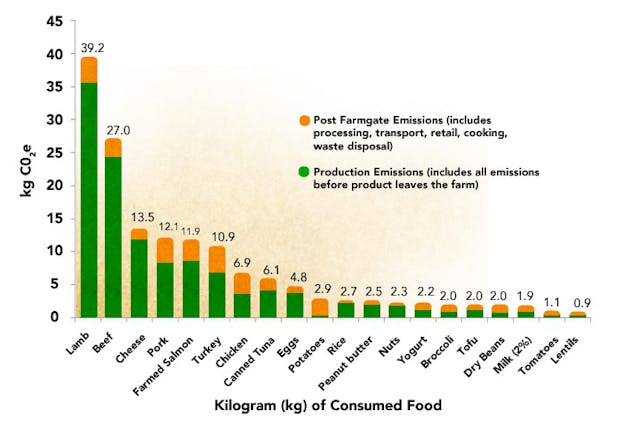When Americans fire up their grills on Independence Day, they’ll dump up to 882 million pounds of carbon pollution into the atmosphere—the equivalent of burning 2,145 railcars of coal. And that doesn’t even include the carbon burned just by driving to July 4 celebrations or the pollution that leeches from fireworks displays.
While it’s unlikely those stats will convince most Americans to skip the summer cookouts and fireworks, there is a less socially obtrusive way to be more environmentally responsible on the Fourth of July: Avoid the traditional barbecue fare.
The consumer advocacy organization Environmental Working Group compares the climate footprint of common foods by looking at how many kilograms of carbon dioxide each is responsible for in its production lifecycle—from the time it’s grown or raised to when it’s cooked.

Red meat has the biggest environmental footprint, which is largely a result from the methane produced by cow digestion and manure. Methane is anywhere between 25 to 36 times more potent than carbon over 100 years. The process of raising and delivering beef to your grill results in 27 kilograms of carbon-equivalent emissions, four times as much as chicken, and 13 times as much as vegetarian options. Since chickens aren’t responsible for high levels of methane, and because they require less feed than cows, they account for fewer emissions overall. But vegetarian fare has the smallest climate impact.
The average American already bears more blame for climate change than citizens anywhere else, thanks to the country’s position as the world’s biggest polluter historically and its high emissions-per-capita. So do your part this holiday weekend: Swap that beef burger for a black-bean burger.
